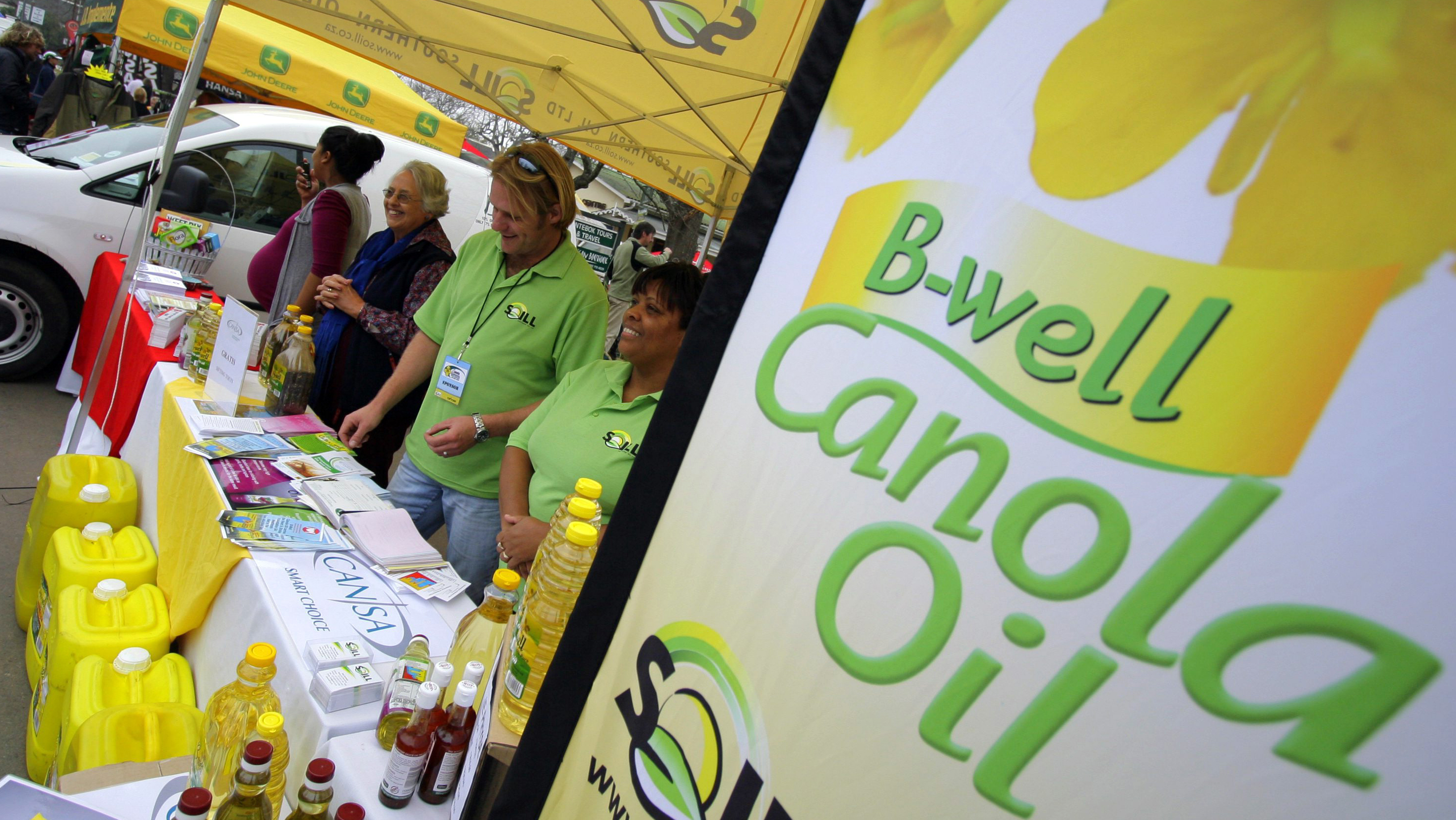On 11 August, the African Centre for Biodiversity (ACB) objected to a proposed field trial of genetically modified (GM) canola, the trial was proposed by Corteva Agriscience, in order to enable the plant to tolerate glyphosate-based herbicides. In the objection, the ACB noted that South Africa had 154 wild relatives of canola that could cross-fertilise, risking widespread genetic contamination.
“Canola can form persistent weedy populations, spread by pollen travelling up to 3km, and seeds can remain dormant in soil for years. Herbicide-tolerant GM crops drive a vicious cycle of increased chemical use, superweeds, soil degradation and environmental harm. Glyphosate is a probable human carcinogen, linked to over 100,000 lawsuits in the US, with Bayer/Monsanto paying $11-billion in damages,” said the centre.
Read more: Farmworkers’ plight: Human cost of food on our plate and wine in our glass
ACB’s executive director, Mariam Mayet, said, “Canola is very, very promiscuous; by this, we mean that it can hybridise very, very easily with wild relatives. Wild relatives of canola would include turnip and wild mustard, but it can also spread its genes to other Brassica species such as cabbage, Brussels sprouts and broccoli.
“And these species, when they receive these transgenes and they become contaminated with them, they become what we call wild and weedy plants. And then we have to spray these superweeds with more glyphosate and then contaminate the soil, as well as runoff into our river systems. And then we also now have to improve the canola, so the next bout of GM canola that will be grown will be a stacked variety. [Plants that have been genetically engineered to contain multiple traits.]
“So they’ll put more traits in the GM canola to resist more toxic herbicides like 2,4-D. You’re now in not only a pesticide treadmill, but you’re also in a GM treadmill, never-ending. So you have more and more GM canola being grown with stacked varieties.”
Read more: Fight to keep 346 pesticides in SA that cause cancer, birth defects or worse
Large amounts of soya and maize grown in South Africa are genetically modified to withstand glyphosate.
Contamination
“They [the applicant] underplay it, and they are ignoring the evidence coming from Argentina and Canada about the contamination that has occurred in those countries. Contamination is a big issue, and it’s the reason why Monsanto withdrew its application 15 years ago,” said Mayet.
Fifteen years ago, when Bayer-Monsanto tried to hold extended trials of drought-resistant maize, the ACB, along with other stakeholders, objected, raising similar concerns, and the company withdrew the application.
In 2024, the Supreme Court of Appeal halted the commercial release of Bayer’s drought-tolerant maize variety MON87460, stating that the Department of Agriculture and the Executive Council for Genetically Modified Organisms (GMO) had not followed due diligence in their risk assessment when they approved the permit.
“Now, canola is being used as canola oil, and it’s been mixed with vegetable oil,” said Mayet. “So we’re going to have some residue of glyphosate in the oils. And … I think in Mexico, they found glyphosate in children with liver disease. And we know that glyphosate has been implicated as a possible carcinogenic compound by the World Health Organization.”
The Department of Agriculture said the application to conduct the field trials was under review, and all necessary assessments would be done to ensure health and biodiversity.
It said the application for the field trials was submitted at the end of June and was under consideration by the Advisory Committee and scientific experts appointed in terms of the GMO Act. The application will be considered by the Executive Council once the risk assessment is finalised by the Advisory Committee.
“The risk assessment for canola will consider the factors relevant in determining the likelihood of potential risks associated with human and animal health and the environment.”
The ACB raised concerns about communities not being alerted to the trials and implications for their environment and health. However, the department said it had publicised this in at least three newspapers.
The department said interested members of the public can submit their comments or objections in connection with the application within 30 days after the date on which the last notice appears in the media.
Corteva Agriscience declined to comment on the objections, when Daily Maverick called the company's Free State branch, they were told no one is available for comment and no further comment could be made. DM




 The African Centre for Biodiversity has lodged an objection to an application for field trials in South Africa of genetically modified (GM) canola. (Photo: Stephen Williams / Gallo Images / Foto24)
The African Centre for Biodiversity has lodged an objection to an application for field trials in South Africa of genetically modified (GM) canola. (Photo: Stephen Williams / Gallo Images / Foto24)